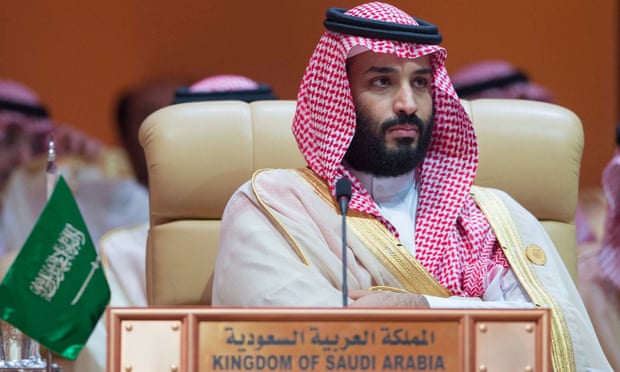Riyadh’s actions against Canada are a signal that any criticism of its domestic policies is unacceptable
Saudi Arabia’s latest diplomatic spat began with a tweet and very quickly escalated to include the expulsion of an ambassador, the suspension of flights and a freeze on trade deals.
The row began with an expression of concern by Canada’s foreign ministry over the arrest of Saudi civil society and women’s rights activists.
In years past, such a public criticism from an ally would have been dealt with behind the kingdom’s famously opaque closed doors.
But as Canada’s envoy heads home, the feeling among diplomats in Riyadh and elsewhere in the Arab world is that Saudi Arabia’s new leadership wants to assert a new set of rules on the regional game.
And the country’s powerful crown prince, Mohammed bin Salman, feels he has the backing to do it.
Projecting strength has become a central concern of the 32-year-old heir to the throne. So has upsetting allies, and starting rows without an apparent follow-up plan.
The new Saudi thinking is that its largesse has been abused and its allies – particularly Barack Obama – have let it down.
Donald Trump’s arrival in the White House changed all that. And the US president’s stance towards the kingdom – and foreign policy in general – has given Riyadh great comfort.
Not only does the Trump administration refuse to discuss human rights with its friends or foes, the issue seems of very little interest to him.
US reaction to the row has so far been distinctly noncommittal.
State department spokeswoman Heather Nauert said on Tuesday that the US has raised the activists’ arrests with the Saudi government – but she declined to explicitly condemn the detentions.
Nauert also refused to wade into the escalating row between its two allies.
“It’s up for the government of Saudi Arabia and the Canadians to work this out,” she said. “Both sides need to diplomatically resolve this together. We can’t do it for them.”
With Trump in the White House, the kingdom knows that it has free rein to handle its domestic affairs – and its foreign policy – as it pleases, with no public challenge from Washington.
Saudi’s diplomatic quagmire in Qatar and its ongoing war in impoverished Yemen have been brushed aside by Trump and even encouraged by his son-in-law and adviser, Jared Kushner.
Over the past two years, Kushner and Bin Salman have spent much time in each others company. Together they have pledged to overcome some of the Middle East’s most sensitive issues including the Israeli/Palestinian peace process and the growing reach of Iran.
But the world’s two most powerful 30-somethings have not gained much traction on either issue.
Kushner has no background in diplomacy and a worldview rooted in “user pays” – not hectoring anyone about how to run a country. Bin Salman’s approach has been to table comprehensive reforms, including some civic freedoms, but to brook no dissent in return.
Political freedoms remain next to non-existent in the kingdom, and power is even more centralised than it was under previous Saudi leaders.
In this context, Canada has inadvertently become a vehicle for a broader message: “Don’t challenge us on domestic affairs.”
Female activists are accused of speaking to foreign governments and reporters –potentially subversive moves when you’re trying to reshape a country.
Many of those detained had been vocal campaigners to overturn of the female driving ban – a watershed moment that finally arrived in June.
But rather than allow the activists to claim credit for forcing the ban to be lifted, Saudi officials were determined to position the move as a gift bestowed from on high.
Political defiance remains a taboo in the “new” Saudi Arabia. Robust advice from allies is getting there too.
The government of Justin Trudeau has not been alone in expressing support for Saudi dissidents, but Canada was likely targeted because Saudi Arabia judged it had less to lose by lashing out. Annual Saudi-Canadian trade hovers around $4bn.
Meanwhile, Trudeau can use criticism of Saudi Arabia to defend himself from judgment over the sale of more than 900 armoured vehicles to Riyadh.
How Saudi Arabia is now projecting itself is rooted in a clear understanding that it has licence to do so from Washington. The Obama-era lecturing that so annoyed previous leaders will not be repeated while Trump is president.
And, the calculation in Riyadh seems to be that if the US is not interested, the views of others don’t matter.


